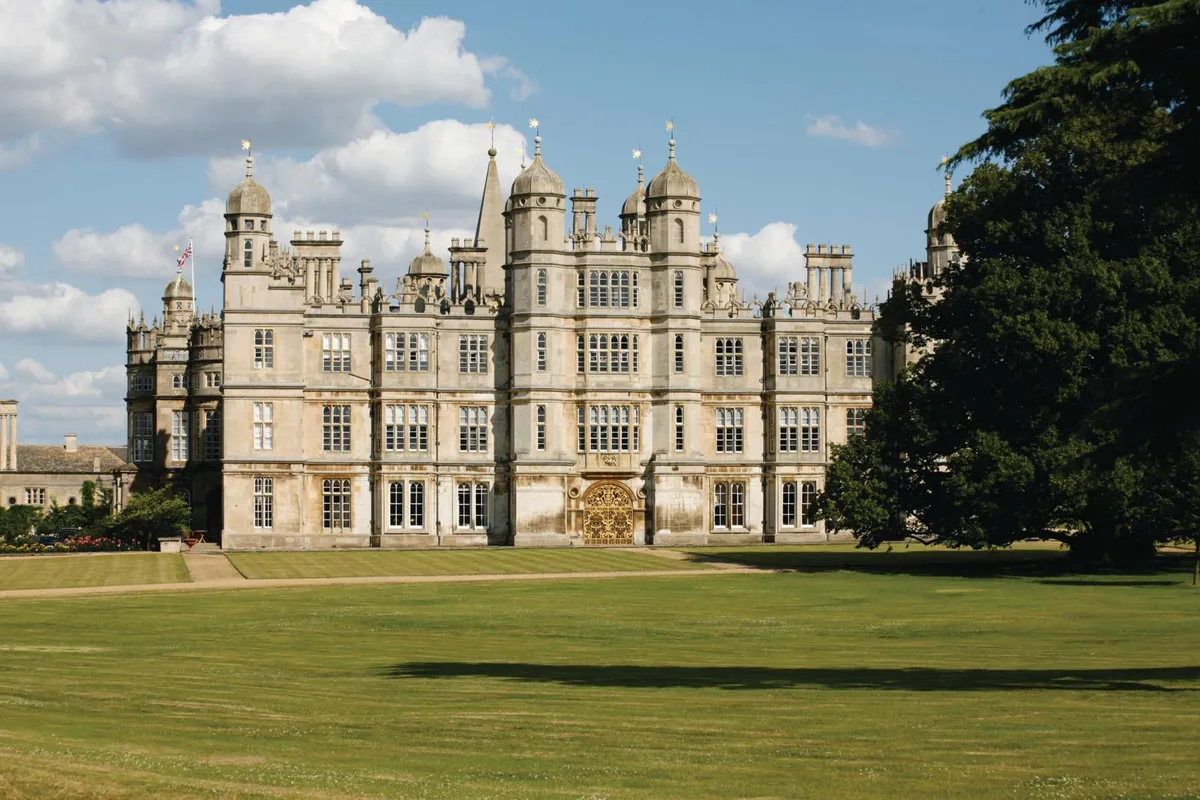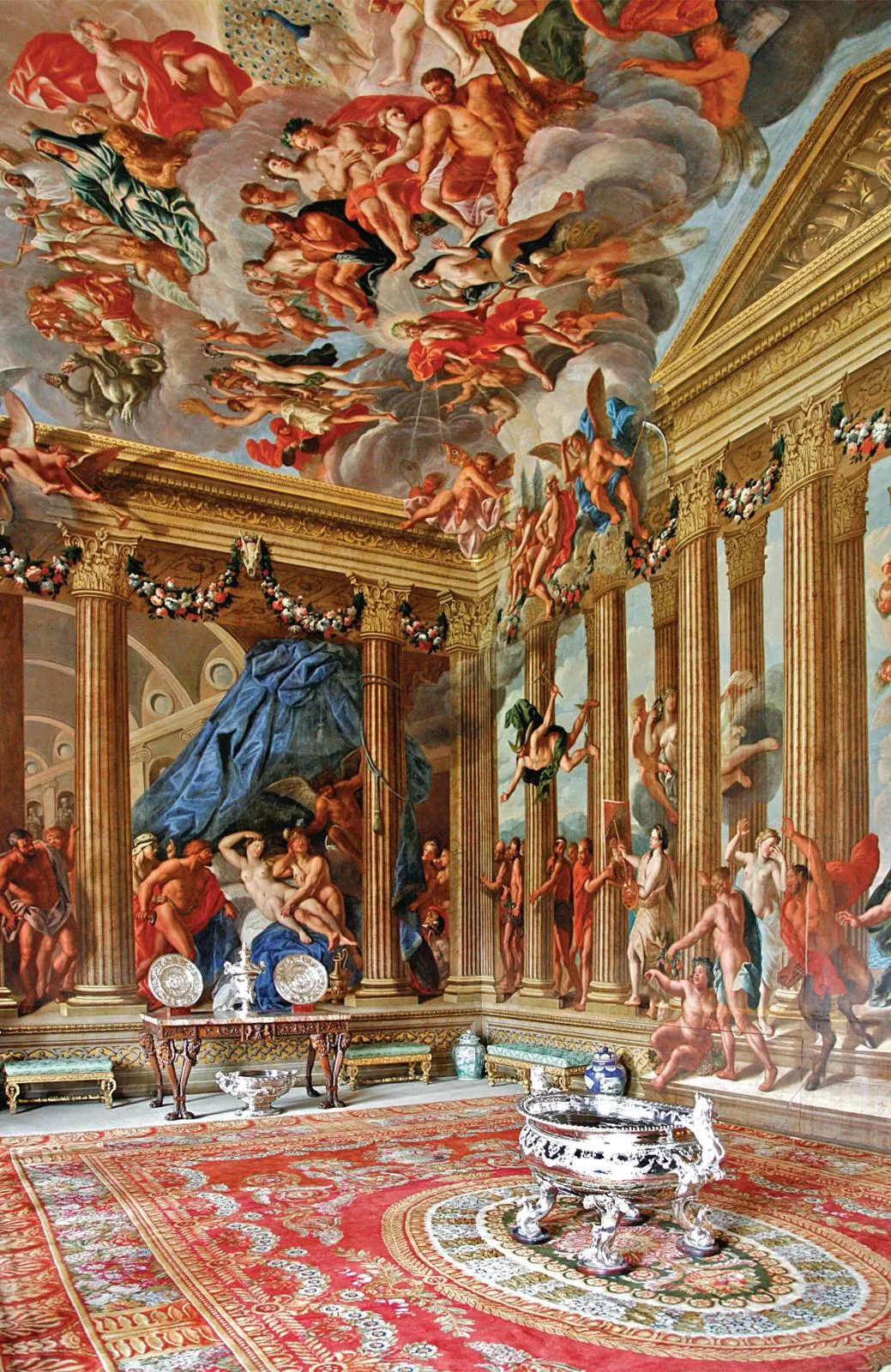'I’m afraid it’s a terrible addiction and it goes back a long way,’ Orlando Rock ruefully admits of the world that has dominated his career and home life for as long as he can remember. ‘My dad was a completely obsessive architectural enthusiast, and most of my childhood memories are basically of a Volvo estate, bubble wrap and blankets; of sneaking into antiques shops, and of going to country house sales and auction views. My mother despaired in the same way my wife now does.’
Through his father, Orlando met the eminent antiques dealer David Nickerson, of Mallett at Bourdon House. ‘He was a deeply civilised, eccentric character, with a fantastic eye,’ he recalls. Orlando was studying History and Art History at Bristol when Nickerson offered him a summer job in the gallery and at the Grosvenor House Antiques Fair.
He recalls the day Nickerson emerged from a boardroom lunch, shrouded in cigar smoke, a phalanx of influential clients in his wake. ‘He walked past me at my desk, lifted the lid off a fantastic Louis XIV porphyry vase, tipped his cigar ash in, and put the lid back on – all the while extolling the virtues of porphyry. It was about loving the objects, using them, talking about them.’
Soon after, Orlando sought advice from Christopher Gibbs, another of his father’s antiques-dealing friends. Gibbs told him the only way to understand works of art was to see them in volume and handle them – and the best place to do that was at Christie’s. Orlando listened, applied to the auction house’s graduate training scheme, and was taken on. He recalls those early days fondly. ‘You started on the front counter, which was full of wonderful but terrifying characters. In those days, people were still bringing in plastic bags, some filled with hidden treasures. Sometimes, though, it was a gentle process of letting people down.’

After a stint in the picture department, he moved to the furniture team and loved it. ‘I spent most of my time in the warehouse, on my hands and knees, cataloguing and researching.’ It turned out to be a highwater moment for furniture sales. Christie’s was selling the Samuel Messer Collection, ‘a really ground-breaking collection of English furniture and an example of the best type of collecting,’ says Orlando. ‘There were incredibly rare things that hadn’t been on the market for 50 years and had been put together with real love. In my 30 years at Christie’s, there hasn’t really been another sale of that quality in the field.’
The Messer Collection helped crystalise Orlando’s interest, not just in the objects themselves, but in the people who created the collections. ‘I was trying to understand the passion and mindset of the collector: how they learned; how their taste changed; the friendships they forged within the trade and museum community; the support they gave within their fields. The journey of the collector is so fascinating.’
Much of his subsequent career has been shaped by this fascination. He has overseen a plethora of historic collection sales, including Houghton, Bute and Longleat, and headed the Private Collection and Country House Sale department before his appointment as Deputy Chairman of Christie’s UK in 2009, and UK Chairman in 2015.
‘There have been so many happy moments and a few dramas, too,’ he adds. ‘Houghton was incredibly formative, because it was a house I had always been passionate about and it had all those layers of collecting. But it was also an intellectual discussion about the desire to raise funds to create an endowment foundation for the house, without picking apart the integrity of the whole.’

This affection for the world of country houses and their collections also permeates Orlando’s private life. He is married to Miranda Rock, Director of Burghley House, and lives in her family’s ancestral home, built by Sir William Cecil in the 16th century. His office is hung with paintings by Sir Thomas Lawrence and Angelica Kauffman, and he is involved in the care and display of the countless works of art the collection contains. ‘No week here is ever the same. The house is run as an educational trust, and the point is to make it as open as possible, and to lend things, too.’
Orlando’s fondness for interesting objects is too powerful for him to resist, although he hesitates to call himself a collector. ‘The more collectors I meet, the more I realise true collecting requires incredible discipline. I don’t have that. For me, it’s about the object and its romantic associations. Like Horace Walpole, I love the tangible sense of history an object brings. I find myself inspired by what Miranda’s ancestors collected, so Japanese lacquer is a weakness. I also love archaeology, and antiquities are something I find fascinating, too.’
Orlando looks to the future of Christie’s with optimism. ‘We are at an exciting moment. Collectors have always determined taste and fashion. These days the collector’s eye, and voice, is even more important. There has been this incredible move towards modernism that shows no sign of slowing down, but there’s also an interesting diversification of taste. And new emerging collecting categories, like contemporary art from sub-Saharan Africa, have huge, almost untapped potential.’
To coax international buyers back to London this summer, Orlando has overseen a new initiative. ‘The Art of Literature’ exhibitions will encompass outstanding works from various disciplines, ‘all weaving that thread between literature and art’. Christie’s will also partner English PEN, the human rights organisation, in an auction of books annotated by contemporary writers to raise funds for the charity. ‘Something that seems especially pertinent, given where we find ourselves.’
